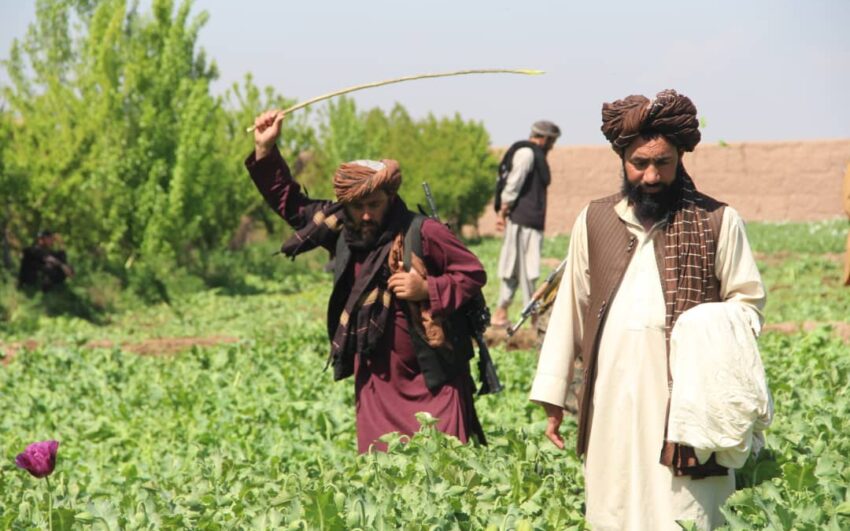KABUL (Kubha News) – Taliban claim that the issue surrounding the eradication of poppy fields in Badakhshan province has been resolved, with local officials reaching an agreement with residents.
Taliban government spokesperson, Zabiullah Mujahid tweeted that a delegation from Kabul met with representatives from the Daraim and Argo districts in Faizabad, the provincial capital of Badakhshan, to discuss the issues surrounding the eradication of poppy fields.
The Taliban spokesperson stated that residents have pledged to support the eradication process of poppy fields and will not obstruct it.
The Taliban government has promised to address the concerns of those affected by recent protests but did not mention what actions they would take regarding those responsible for shooting at protesters, resulting in the death of a young man.
The Taliban spokesperson claimed that the people of Badakhshan support their program to eradicate poppy fields but did not mention providing economic assistance or alternative crops to farmers as part of this commitment.
Residents of the Argo and Daraim districts protested last Friday after reports of the Taliban local government initiating a poppy field eradication program in the province. During the protests, Taliban forces fired at demonstrators, resulting in one death and several injuries.
On Monday, the Taliban government sent a delegation led by Qari Faseehuddin, Minister of Defense chief of staff, to engage with local residents in Badakhshan.
Although the delegation was supposed to travel to the Daraim and Argo districts, for unknown reasons, they remained in Faizabad, the provincial capital, for the past two days. Today, representatives from these districts arrived in the capital to meet with the delegation.
Farmers in Badakhshan claim they have been informed about the ban on poppy cultivation for the past two years but that the Taliban government has failed to provide necessary economic assistance or alternative crops during this time.
Taliban leaders announced a ban on poppy cultivation in the 1401 solar year, but despite commitments to farmers regarding alternative crops, neither they nor the United Nations have successfully provided alternatives to poppy cultivation for farmers.
